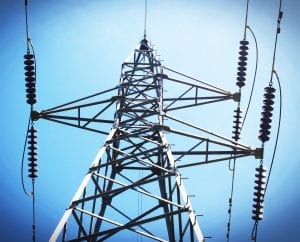4 Things to Consider Before Buying Vacant Land
Finding your dream home isn’t easy, and maybe it doesn’t exist yet, so building a home on a vacant piece of land may be the perfect option. Be aware that a land purchase may yield more
surprises than buying a home, so don’t stake your claim until you know the potential pitfalls.

Location, Location, Location
Location is more important than just the side of town you want to live on and is the single most important consideration when buying a lot.
If the property you are considering is in a subdivision, where is it situated? Do you have a nice
view or are you right next to a highway or major thoroughfare?
If you have children, or plan to have children, which school district will you be in and how do
they compare to the others in the area?
What is nearby? Depending on the stage of your life you may need different community
amenities. For instance, if you are retired you may need to be closer to medical services,
recreational facilities, or fitness centers.
Picture Your Neighborhood in 10 years
Sometimes home buyers fall in love with certain aspects of a property, that they fail to ask the
larger questions. For instance, whether or not there are plans to expand the neighborhood
resulting in a highway in your backyard.
When new developments emerge and properties are selling quickly, sometimes early buyers
can’t quite see how things will end up. The beautiful farm land that you can see on your back
porch, might end up as a strip mall in a few years, and if it does, will you be alright with that?
Know the Setback of Your Property
In land use, a setback is the minimum distance which a home can be literally set back from a
road, body of water, flood plain, or any other place which is deemed to need protection. Your
local building department will have the answer to this question, it will dictate where you can and
can not put your house or a detached garage on your property.
Utilities and Their Cost
Find out exactly how you are going to get power and water to your house, and how to handle
waste. You will want to know exactly how you are going to get access to the following:
 • Water (utility company or well)
• Water (utility company or well)
• Waste (septic or sewer)
• Power
• Gas (utility company or propane tank)
• Phone and Internet service
If you find a beautiful lot in a remote location for only a few thousand dollars, there is likely a
reason for that. If you are far away from other homes or a utility provider, you may be charged a
large fee to bring the utilities out to the property, by the foot. That can add up to astronomical
rates, depending on your locality.
If you live in a city, you may still have to pay tap fees. Meaning the existing water and sewer
lines are there already, but you still need to hook into them. In Fayetteville, tap fees average
around $10,000 and some are even higher in other places.
Hopefully, these tips will give you a better idea of which questions to ask. So good luck and happy hunting!
